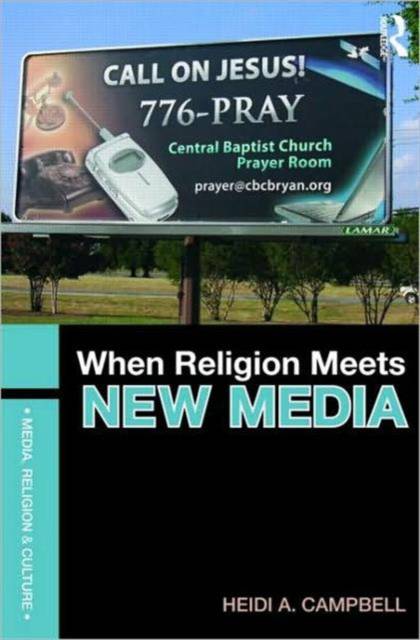
- Retrait gratuit dans votre magasin Club
- 7.000.000 titres dans notre catalogue
- Payer en toute sécurité
- Toujours un magasin près de chez vous
- Retrait gratuit dans votre magasin Club
- 7.000.000 titres dans notre catalogue
- Payer en toute sécurité
- Toujours un magasin près de chez vous
Description
This lively book focuses on how different Jewish, Muslim, and Christian communities engage with new media. Rather than simply reject or accept new media, religious communities negotiate complex relationships with these technologies in light of their history and beliefs. Heidi Campbell suggests a method for studying these processes she calls the "religious-social shaping of technology" and students are asked to consider four key areas: religious tradition and history; contemporary community values and priorities; negotiation and innovating technology in light of the community; communal discourses applied to justify use.
A wealth of examples such as the Christian e-vangelism movement, Modern Islamic discourses about computers and the rise of the Jewish kosher cell phone, demonstrate the dominant strategies which emerge for religious media users, as well as the unique motivations that guide specific groups.
Spécifications
Parties prenantes
- Auteur(s) :
- Editeur:
Contenu
- Nombre de pages :
- 232
- Langue:
- Anglais
- Collection :
Caractéristiques
- EAN:
- 9780415349574
- Date de parution :
- 12-03-10
- Format:
- Livre broché
- Format numérique:
- Trade paperback (VS)
- Dimensions :
- 156 mm x 234 mm
- Poids :
- 326 g







